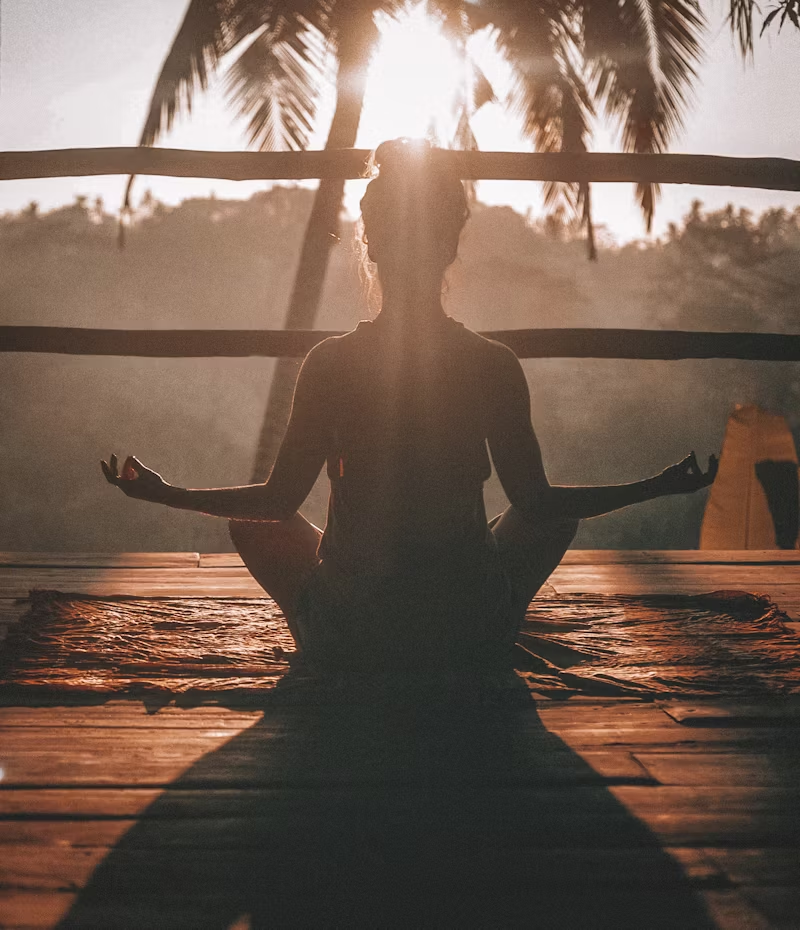How Sleep Music Transforms Your Night
Last night, I found myself tossing and turning at 2 AM again. The stress from work deadlines kept my mind racing, making quality sleep seem impossible. That's when I remembered my friend Sarah's advice: "Try sleep music."
I was skeptical at first. How could simple sounds make such a difference? But after experiencing the transformative effects firsthand, I've become somewhat of a sleep music enthusiast. In this article, I'll share everything I've learned about using music to improve sleep quality, from scientific benefits to practical recommendations for different age groups and sleep needs.
What Is Sleep Music and Why Does It Work?
Sleep music refers to specially composed or selected audio designed to promote relaxation and facilitate the transition to sleep. Unlike regular music, sleep music typically features slow tempos (around 60-80 BPM), gentle instrumentation, predictable patterns, and minimal dynamic changes.
Dr. Michael Breus, a clinical psychologist and sleep specialist, explains: "Music can trigger physical and emotional responses that parallel a state of relaxation: slower breathing, lower heart rate, and reduced blood pressure—all necessary for falling asleep."
Recent research from the Sleep Foundation found that 62% of participants reported falling asleep faster when listening to calming music, while 76% experienced improved sleep quality.
Different Types of Sleep Music for Various Needs
Sleep Music for Babies

Parents know the struggle of getting little ones to sleep. Sleep music for babies often mimics womb sounds or incorporates gentle lullabies. These sounds create a sense of security for infants, helping them settle more easily.
My neighbor Emily shares: "After three sleepless weeks with our newborn, we discovered baby sleep music. The gentle white noise and soft melodies worked like magic. Now it's an essential part of our bedtime routine."
When selecting sleep music for babies, look for:
- Simple, repetitive melodies
- Gentle instruments like music boxes or soft piano
- Consistent volume without jarring changes
- White noise elements that mask household sounds
Peaceful Sleep Music for Adults
As adults, our sleep challenges often stem from busy minds and daily stress. Peaceful sleep music offers a mental reset, guiding our thoughts away from worries and toward relaxation.
The best peaceful sleep music typically features:
- Natural sounds like rainfall or ocean waves
- Gentle instrumental compositions
- Minimal or no vocals
- Consistent rhythm without surprises
I've found that 20 minutes of peaceful sleep music before bed significantly reduces the time it takes me to fall asleep—from my usual 45 minutes down to about 15.
Sleepytime Music for Adults

Sleepytime music for adults often incorporates elements specifically designed to address adult sleep issues. Unlike children's sleep music, adult versions may include more complex compositions while still maintaining a relaxing quality.
My colleague James, who struggled with insomnia for years, remarks: "I've tried everything from prescription medications to meditation. Nothing worked consistently until I found a sleepytime playlist designed for adults. The combination of gentle piano and ambient sounds helps me disconnect from work stress."
Effective sleepytime music for adults often includes:
- Slow tempo classical pieces
- Ambient soundscapes
- Light jazz or acoustic arrangements
- Nature sounds blended with instrumental music
Quick Solutions for Sleep Problems
1 Hour Sleep Music Fall Asleep Fast
For nights when you need to fall asleep quickly, 1 hour sleep music fall asleep fast tracks are designed to gradually guide your brain toward sleep states. These compositions typically start with slightly more engaging elements that gradually simplify, slowing your brain activity in tandem.
These tracks work well when:
- You need to reset your sleep schedule
- You're dealing with temporary stress
- You have limited time for sleep
- You're in an unfamiliar environment
Music to Make You Fall Asleep Instantly
While "instantly" might be an exaggeration, some compositions are particularly effective at rapidly inducing drowsiness. Music to make you fall asleep instantly often utilizes specific frequency patterns and binaural beats to encourage brain wave patterns associated with sleep.
My experience with these tracks has been impressive. After a particularly stressful presentation day, I found a track claiming to induce sleep quickly. Despite my skepticism, I was drifting off within minutes.
Best Deep Sleep Music

Quality matters as much as quantity when it comes to sleep. Best deep sleep music focuses on helping you achieve and maintain slow-wave sleep, the most restorative sleep phase.
Dr. Jennifer Wilson, sleep researcher at Stanford University, explains: "Deep sleep music often incorporates delta wave frequencies between 0.5 and 4 Hz, which mirror the brain's activity during slow-wave sleep. This can help listeners achieve more restorative rest."
The most effective deep sleep music typically features:
- Low frequency sounds
- Minimal variation
- Subtle, non-intrusive melodies
- Binaural beats in some cases
Meditation and Mindfulness for Sleep
Bedtime Meditation Music
Bedtime meditation music combines the benefits of meditation with sleep-inducing sounds. These tracks often include guided elements at the beginning that transition into pure instrumental sections.
Sarah, a yoga instructor I interviewed, shares: "I recommend bedtime meditation music to all my students who struggle with sleep. The combination of mindfulness practice and soothing sounds creates the perfect transition from wakefulness to sleep."
Deep Sleep Meditation Music
Taking meditation for sleep a step further, deep sleep meditation music focuses specifically on guiding listeners toward the deepest sleep stages. These compositions often incorporate:
- Guided relaxation techniques
- Body scan elements
- Visualization components
- Progressively slowing rhythms

Practical Ways to Incorporate Sleep Music
Play Music to Fall Asleep
The simplest approach is to play music to fall asleep as part of your bedtime routine. Consider these practical tips:
- Start the music 20-30 minutes before your intended sleep time
- Use comfortable headphones or a quality speaker
- Set a timer to turn off the music after you're likely asleep
- Maintain a consistent volume that's audible but not intrusive
Play Night Time Music
Play night time music throughout the night if you:
- Wake frequently during sleep cycles
- Live in a noisy environment
- Experience anxiety during nighttime awakenings
- Need help maintaining consistent sleep quality
For all-night listening, consider:
- Using a dedicated sleep music device rather than your phone
- Selecting tracks without surprising elements
- Keeping volume low but audible
- Using a comfortable sleep headband with built-in speakers if you share your bed
Soothing Bedtime Music
Soothing bedtime music works best as part of a comprehensive sleep hygiene practice. I've found combining this music with other relaxation techniques maximizes effectiveness:
- Pair with a warm bath or shower
- Use alongside gentle stretching
- Combine with aromatherapy like lavender
- Incorporate after a brief journaling session to clear your mind
Finding Free Resources
Free Soothing Music for Sleep
Quality free soothing music for sleep is more accessible than ever. Here are some reliable sources I've personally tested:
- YouTube channels dedicated to sleep music
- Spotify's free sleep playlists
- Mobile apps with free sleep sound libraries
- Public library digital resources
My personal favorite free resource is the Insight Timer app, which offers hundreds of sleep music tracks without requiring a subscription.
Creating Your Own Sleep Music Routine
After experimenting with various approaches, I've developed a personalized sleep music routine that has improved my sleep quality dramatically:
- Begin with 10 minutes of relaxing music sleep music while completing my skincare routine
- Transition to peaceful sleep music during 5 minutes of gentle stretching
- Finish with deep sleep meditation music as I get into bed
This progression helps signal to my body that it's time to wind down, making the transition to sleep much smoother.
Conclusion: Finding Your Perfect Sleep Soundtrack
Sleep music isn't a one-size-fits-all solution. What works wonders for one person might be ineffective for another. The key is experimentation and consistency.
I encourage you to try different styles of sleep music for at least a week before deciding if they work for you. Your perfect sleep soundtrack might be waiting to transform your nights and, by extension, your days.
Have you found a particular type of sleep music that works well for you? Share your experiences in the comments below!